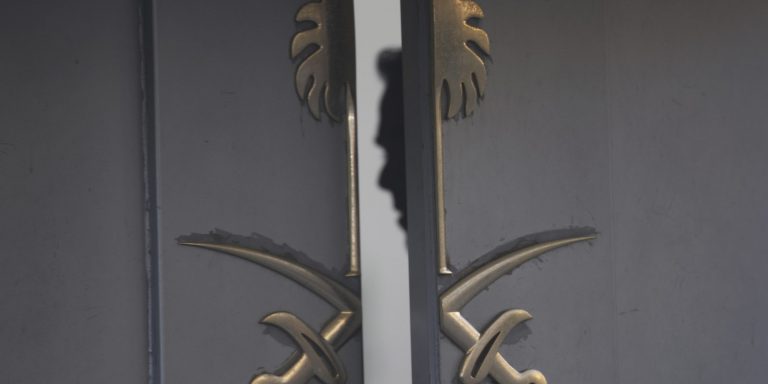INTELBRIEF
October 18, 2018
IntelBrief: The Rising Trend of State-Sponsored Assassination Attempts

- As the details continue to emerge, the murder of Jamal Khashoggi appears to be a political assassination, potentially orchestrated by the Saudi government.
- There are reports, given credence by President Trump, that the royal family will seek to blame ‘rogue elements’ for Khashoggi’s murder, however implausible that scenario might be.
- In March 2018, Russian operatives tried to assassinate a former Russian intelligence officer in Salisbury, England.
- In February 2017, two operatives murdered the half-brother of North Korean dictator Kim Jong-un in the middle of the Kuala Lumpur airport.
.
The apparent murder of Jamal Khashoggi inside the well-guarded Saudi consulate in Istanbul two weeks ago is another example of what seems to be a rising trend of assassinations committed by outlaw nations outside of their own borders. The ubiquity of surveillance cameras has eased the burden on those conducting the forensics of these incidents, although it has yet to curtail the murder of dissidents and regime critics by despotic governments. Far from expressing concern over the growing availability of evidence regarding their culpability in an assassination, governments like Saudi Arabia and Russia simply dismiss the most overwhelming evidence with half-hearted denials, labeling credible reports as ‘fake news.’
The initial Saudi reaction to the October 2 assassination of Khashoggi was to literally call it ‘fake news’ and then threaten those who queried further details concerning the incident. The hastily arranged visit by U.S. Secretary of State Pompeo to meet with Crown Prince Mohammad bin Salman resulted in a U.S. expression of support for the Saudi royal family to investigate itself, even though when asked about what the discussions entailed, Pompeo noted, without irony, that the Saudis preferred not to discuss ‘any of the facts.’ There are widespread reports surfacing that Riyadh will not deny the death of Khashoggi. So far, the Saudis have claimed that he walked back out of the embassy mere minutes after walking in. The forthcoming admission will allegedly confess to a ‘botched’ interrogation and rendition or even an unapproved operation by ‘rogue elements,’ however implausible such a scenario would be in reality.Up until now, the Saudi response has been consonant with previous responses by governments directly implicated in assassination plots—deny, dismiss and divert, while waiting for the news cycle to keep churning and move on to other stories.
On March 4, 2018, two Russian operatives attempted to assassinate Sergei Skripal, a former Russian military intelligence officer, in Salisbury, England. Because of the unusual and specific nature of the chemical agent used in the attempt—the Soviet-developed chemical agent ‘Novichok’—it was immediately obvious that this was more than just a low-level operation. The Kremlin dismissed the mounting evidence as ‘fake news’ and blamed it on the usual ‘anti-Russia’ cabal. Surveillance footage later contradicted the Russian story of two men who simply wanted to visit the famous cathedral in Salisbury but were deterred by snowy sidewalks. Further revelations that the men traveled under passport numbers issued in sequential order to GRU operatives were also dismissed by Moscow. While Skripal survived the attempt on his life, a woman named Dawn Sturgess died four months after the assassination attempt when she inadvertently picked up the container used to disperse the Novichok that the would-be assassins had tossed away after the attack. Russia has dismissed this as ‘fake news’ as well.
In February 2017, two women smeared VX nerve agent on the face of Kim Jong-nam, the estranged half-brother of North Korean dictator Kim Jong-un. Jong-nam died later that same day. The assassination took place in the middle of the busy airport in Kuala Lumpur, Malaysia. Again, there was surveillance footage of the bizarre and deadly attack; the two women, Siti Aisyah and Doan Thi Huong, stated they had been paid to rub lotion on people’s faces as part of a reality television show. For its part, Pyongyang has outright dismissed all involvement, even though four North Korean men were filmed observing the attack, and then boarding flights afterwards. These four men are now on Interpol’s Red Notice.
The ubiquity of surveillance cameras does make unraveling investigations related to assassination attempts easier after the fact,but the clear evidence and resulting outrage so far haven’t produced much in terms of changing behaviors of governments like Russia, North Korea, and now Saudi Arabia. A tepid international response will likely encourage future similar behaviors and even inspire other rogue actors to follow suit. The identification of the operatives involved can help to restrict their international travel, but to these outlaw regimes, this is a small and welcome tradeoff for the elimination of those who are deemed expendable. Far from rogue elements, these are reckless governments that have assassinated or attempted to assassinate their own citizens on foreign soil, occasionally killing innocent bystanders in the process. As long as these rulers believe such murders are worth the short-term storm of ‘concern and condemnation,’ they will continue unabated.
.
For tailored research and analysis, please contact: info@thesoufancenter.org
[video width="960" height="540" mp4="https://thesoufancenter.org/wp-content/uploads/2018/10/IB-1018.mp4" poster="https://thesoufancenter.org/wp-content/uploads/2018/10/AP_18289254544862-1-e1539807309820.jpg"][/video]